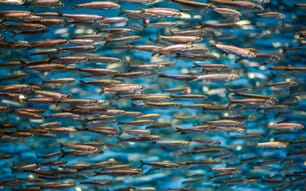This is the main finding to emerge from AQUAMED, a European Commission-funded project tasked with assisting the development of a cross-functional strategy for sustainable aquaculture research in the Mediterranean basin.
Coastal zones are of strategic importance to the EU and many European citizens live, holiday and work in these areas and they are a major source of our food and raw materials. Consequently, a knowledge-based strategy for the development of Mediterranean aquaculture is considered necessary and that is where AQUAMED comes in.
Launched in June 2010 with €996,854 of EU funding, the three-year project sought to tackle some of the challenges facing Mediterranean aquaculture, including inadequate production systems and competition with other users.
It involved partners from 13 Mediterranean countries and ended in May last year. The findings were presented in Brussels on 4 February by Dr Jean-Paul Blancheton, AQUAMED project coordinator.
The recommended plan of action includes the creation of an interest group involving industry, research and policy makers and also a reward system for researchers successful in delivering applicable research. The innovation process could be speeded up, it further recommends, by industries 'renting' researchers and science systems and sharing risks. The plan also advocates finding new and alternative sources of material to replace fish meal and fish oil in aquafeed composition.
The AQUAMED project has identified the main research centres, stakeholders and research projects involved in the improvement of Mediterranean aquaculture. The purpose of the action plan is to avoid duplication and fragmentation of research efforts and stimulate long-term cooperation and coordination between policy makers and the aquaculture industry.
The project studied the predicted aquaculture trends the region could face by the year 2030 as well as the main constraints that are currently affecting the industry.
The initiative, funded under the European Union Seventh Framework Programme, also set out to promote innovative Mediterranean research and Dr Blancheton said all these objectives had been achieved by bringing together aquaculture stakeholders across the Mediterranean to join a multi-stakeholder platform (MSHP) which will identify and prioritise research needs for the aquaculture sector.
As a result of the expected improved collaborative work between southern and eastern Mediterranean countries and their EU counterparts, there is optimism that future funding will be 'strategic, coordinated and orientated' towards meeting the biggest challenges facing the sector. This cooperation will facilitate capacity building to enhance harmonisation of aquacultures and research policies in the Mediterranean basin.
Dr Blancheton said the AQUAMED project had resulted in 'several significant' achievements, notably the plan of action.
He commented: "The AQUAMED project's success was based on the engagement of the Mediterranean aquaculture stakeholders. The stakeholder events helped the partnership to show the importance of industry, researchers and policy makers working together to define the Strategic Research and Innovation Agenda for Mediterranean Aquaculture."



